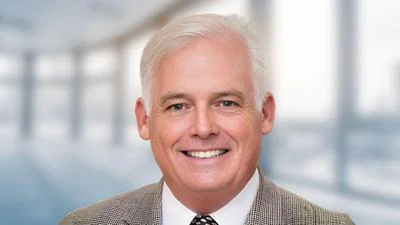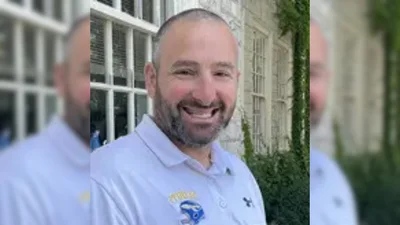Lake County Commission on Government Reform and Accountability met November 15.
Here is the minutes provided by the Commission:
1.Call to Order
Chair Foreman called the meeting to order at 11:30 a.m.
Present 13 - Ex-Officio Member Rummel, Member Foreman, Member Ryg, Member O'Connor, Member Osmond, Member Roberson, Member Lamphere, Member Link, Member Shaw, Member Msall, Member Magalis, Member Kim and Member Darch
Excused 2 - Member Bensinger and Member Schaafsma
Others Present:
Jeff Werfel, Board Member
Linda Pedersen, Board Member
Aaron Lawlor, Board Member
Carol Calabresa, Board Member
Steve Carlson, Board Member
Mary Cunningham, Board Member
Judy Martini, Board Member
Sandy Hart, Board Member
Chuck Bartels, Board Member (participated via telephone)
Roger Zellner, Public
Farrah Watson, Circuit Clerk
Mary Mathews, Public
Nikki Kelly-Sehmeisger, Public
Jeanne Kearly, Public
Amy Knutson Strack, Public
Trisha Steele, Public
Barry Burton, County Administrator’s Office
Amy McEwan, County Administrator’s Office
Jennie Vana, County Administrator’s Office
Dakisha Wesley, County Administrator’s Office
Paul Fetherston, County Administrator’s Office
Susan Hoyt, Management Partners
Kevin Knutson, Management Partners
Mike Casey, Management Partners
Sonia Hernandez, County Administrator’s Office
2. Approval Of Minutes
2.1 17-1212
Minutes from October 4, 2017.
A motion was made by Member Msall, seconded by Member Darch, that the minutes be approved. The motion carried by the following vote:
Aye: 12 - Ex-Officio Member Rummel, Member Foreman, Member Ryg, Member O'Connor, Member Osmond, Member Roberson, Member Lamphere, Member Link, Member Shaw, Member Msall, Member Magalis and Member Darch
Not Present: 1 - Member Kim
3. Chair's Remarks
Chair Foreman thanked everyone for being at the meeting and being prepared for the discussion.
Vice Chair Ryg thanked everyone for being so engaged throughout the process and for participating in a great opportunity to demonstrate leadership in Lake County. This included gathering information, studying best practices, and providing actionable direction to the county to keep Lake County as a leader in local government.
Chair Foreman asked for public introduction.
4. Public Comments (items not on the agenda)
Ms. Trisha Steele, of Round Lake, addressed the Commission on the Independent Redistricting recommendation. She explained that the county board should be limited to one of two options when it considers action on a redistricting plan proposed by an Independent Redistricting Commission. The options would be to accept the plan or to reject the plan. There would be no option to modify the plan. If the proposed plan was rejected by the county board, it would go back to the Independent Redistricting Commission for revisions.
5. Old Business
There was no old business to conduct.
6. New Business 6.1 17-1282
Review Draft Lake County Commission on Government Reform and Accountability Report
Kevin Knutson, Management Partners, explained that the June through September Commission meetings focused on fact finding. The October 4 meeting was a discussion of recommendations which provided the basis for the discussion today.
Member Kim entered the meeting at 12:40 p.m.
6.2 17-1283
General Comments
Member Mike Rummel, an ex officio member representing county board members, reported on comments that Chair Lawlor and he received about the Commission’s work from their county board colleagues. Member Rummel explained that the Chair Lawlor had requested written responses to four questions. He also noted that Chair Lawlor was committed to maintaining a high level of autonomy for the Commission throughout the process and that this had been accomplished.
Five county board members, Chuck Bartel, Steve Carlson, Judy Martini, Jeff Werfel, and Vance Wyatt responded to the request for input. A summary of their comments follows.
They were comfortable with how authority is currently shared among the board, chairman and county administrator in helping them accomplish their goals.
Three respondents said that they were proud of the county’s record of fiscal management, outreach and partnership efforts, strategic planning and ability to serve as a model for other counties to follow such as the Smoke Free Lake County and Tobacco 21 initiatives.
One respondent supported the concept of an at large elected board chair, but only if the board chair was designated as a non-partisan position. Others opposed the concept of an at large elected chair because it might create a partisan divide in the county, might increase the cost of campaigns, and might increase county costs by adding staff for the chair. It was also noted that an at large elected chair is not a predictor of the county’s overall success.
One respondent expressed an interest in understanding why the county board changed its election process from multi-member districts to single member districts.
No respondents supported a change in the size of the board. Some respondents expressed concern that a decrease in the board size might lead to an increase in the cost of campaigns and the dilution in a majority – minority district making it more challenging for a member of a majority minority community to get elected.
6.3 17-1284
Redistricting Options
Vice Chair Ryg updated the Commission on the Illinois Redistricting Collaborative’s recent adoption of redistricting principles. The Commission agreed to recommend these principles since they were consistent with those already considered by the Commission. It also recommended that the county advocate for these redistricting principles.
Recommendations:
Apply redistricting principles to any process for reapportionment following the 2020 census.
1. Comply with the U. S. Constitution
2. Comply with federal and state voting rights act
3. Comprise and uphold a non-partisanship process
4. Maximize voter choice, electoral, candidacy and competitiveness
5. Recognize and preserve communities of interest
6. Accurately include permanent residence of all Illinoisans
7. Comprise and uphold a transparent and accountable process
8. Provide for open, full, and meaningful public participation
Use county data and technology to support the drafting of a redistricting map that complies with federal and state voting rights and other legal requirements of redistricting.
Develop a process for establishing an Independent Advisory Redistricting Commission, a transparent public awareness and engagement process, and public education efforts based on approved redistricting principles.
Monitor the Supreme Court case (Gill v. Whitford) along with other legal actions and decisions related to redistricting.
6.4 17-1285
The Size of the County Board
The Commission expressed support for the current 21 districts in the county while they recognized that circumstances may change. Any changes can be addressed during the redistricting process. The Commission acknowledged that unincorporated areas may generate a larger workload for a county commissioner than incorporated areas because, so many decisions rise to the county level when there is no municipal government. Commissioners also expressed an interest in exploring how multi-member districts with majority and minority representation might be used in lieu of single member districts in the future.
Recommendations:
There is no evidence to suggest that a change in county board size from 21 members is needed or would be beneficial.
Conduct an analysis of districts and services in advance of the redistricting process to determine if there would be a more effective distribution of representation with attention to differences in workload in unincorporated and incorporated areas.
Research the potential to improve opportunities for minority party representation through the use of multi-member districts before making any changes.
Continue the practice of appointing some minority party representatives on the board as committee chairs in the rules of order and operating procedures.
6.5 17-1286
The Method of Electing the Chair
The Commission had a rich discussion on the at-large elected chair. The Commission acknowledged the testimony of state legislators, Representative Mayfield, Representative Yingling and Senator Bush, that supported an at-large elected chair as well as other collar county at large elected chairs, Chairman Franks and Cronin and County Executive Larry Walsh. These elected officials testified that an at large elected chair provided an opportunity for voters to select an identifiable leader for the county and allowed the chair to focus on countywide, regional and state issues without dealing with possible conflicts from representing a district too. Former Kane County Chair McConnaughay stressed the importance of having the county board clarify the chair’s roles and responsibilities when there is an at large elected chair. Commission member (Senator) Link expressed his support for the at large elected position because of greater visibility and voter selection. After careful consideration, the Commission supported the peer elected board chair because of the collaborative nature of the position and the current success the county has experienced under a peer elected chair’s leadership. The peer elected chair also maintains the entire county board’s accountability for decisions, especially budgeting and taxing rather than tying these decisions exclusively to the at large chair. The Commission recognized that the county’s needs may change over time. If the county finds that an at large elected chair may serve it better, it can be addressed during the redistricting process. The Commission agreed that the report would include a footnote reflecting the perspective of Senator Link and the testimony of the legislators on the at large elected chair.
Recommendations:
There is no evidence to suggest that a change from a peer‐elected county board chair is needed or would be beneficial.
Should a referendum on an at large elected chair be required by citizen initiative, county board action, or legislation; conduct a voter awareness campaign to share information gathered by the Lake County Government Reform and Accountability Commission.
Clarify the chair’s duties and responsibilities in the rules of order and operational procedures prior to the next election of the county board chair in 2018.
6.6 17-1287
Other Reform Proposals: Review of Elected Positions, Intergovernmental Collaboration, Multi-Member Districts, Alternative Voting Methods
The Commission discussed the recommendations on other reform issues that emerged during its deliberations.
Recommendations: Review all countywide elected official positions subject to the county’s authority (recorder, coroner) to understand their function, policy authority, costs and opportunities for increased effectiveness and cost efficiency to determine areas for consolidation or collaboration. The report will footnote that the clerk of circuit court position was raised during the Commission’s deliberations.
Engage local governmental agencies in a discussion about potential collaboration or service-sharing that is based on data that includes the impact on taxing bodies and cost effectiveness from these initiatives.
Research alternative voting options other than simple majority (e.g. ranked, cumulative, and open list ballots) as ways to increase minority representation using the information gathered by the Lake County Government Reform and Accountability Commission.
6.7 17-1288
Additional Comments
There were no additional comments.
6.8 17-1289
Next Steps and Purpose of December 20, 2017 Commission meeting at 8:30 a.m. at the Lake County Health Department, Waukegan
Chair Foreman reported that the next Commission meeting was scheduled for December 20, 2017 at 8:30 a.m. at the Lake County Health Department to consider the final report.
7. Adjournment
Chair Foreman adjourned the meeting at 1:13 p.m.
Minutes prepared by Susan Hoyt, Kevin Knutson and Sonia Hernandez.
https://lakecounty.legistar.com/View.ashx?M=M&ID=552279&GUID=BDE4F0AD-AEB8-4779-951D-C28C1E849C07






 Alerts Sign-up
Alerts Sign-up